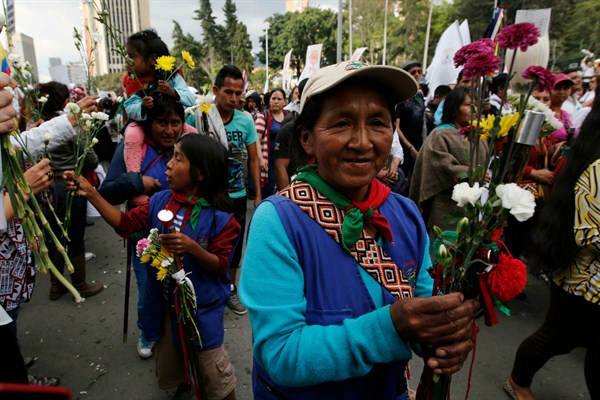Editor’s note: This article is part of an ongoing WPR series on the legal status and socio-economic conditions of indigenous peoples in a range of countries.
According to the United Nations, at least 21 human rights activists, mostly from indigenous communities, have been killed in Colombia this year. Most of the murders are related to the ongoing peace process with the Revolutionary Armed Forces of Colombia, or FARC, and many fear it will only get worse if a peace accord isn’t implemented soon. In an interview transcribed by Gimena Sanchez-Garzoli, a senior associate with the Washington Office on Latin America, Luis Fernando Arias, president of the National Indigenous Authorities of Colombia, discusses indigenous rights in Colombia.
WPR: What is the legal status of Colombia’s indigenous peoples, and what are the key issues facing Colombia’s indigenous communities?

